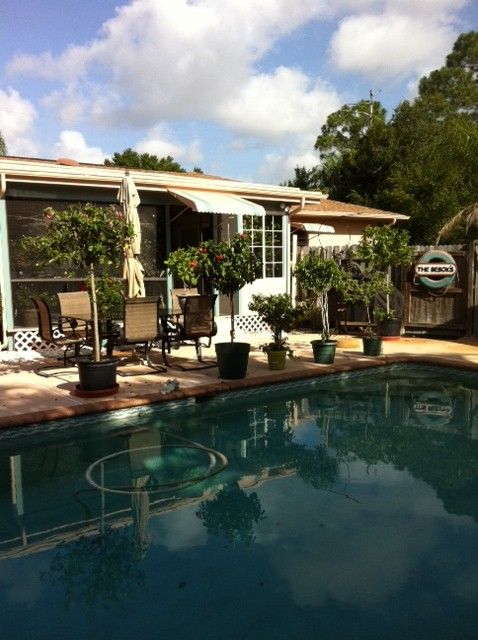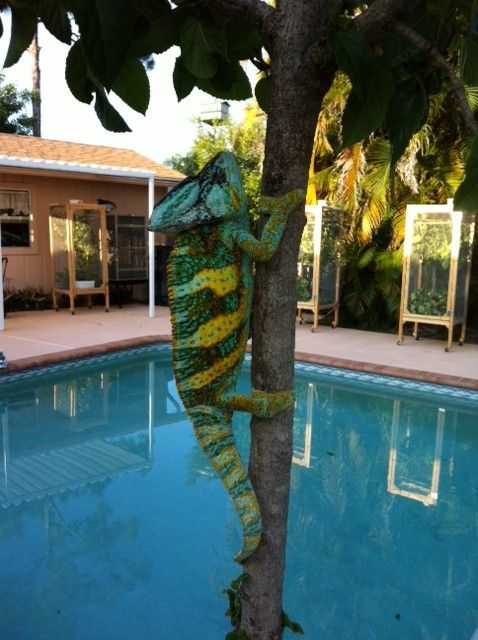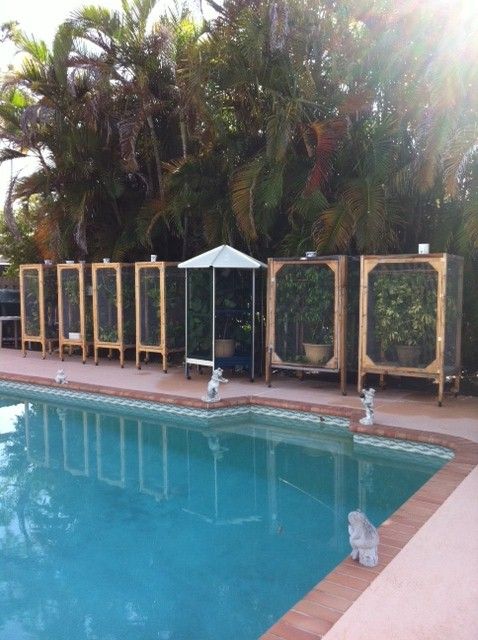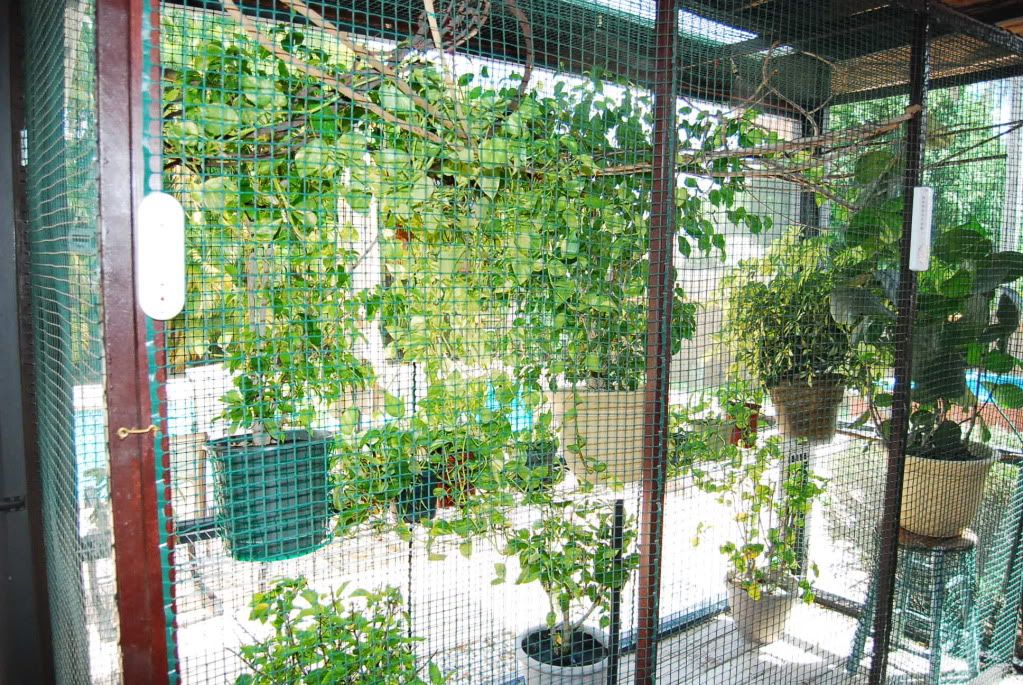B
busterboy
Guest
Does anybody house their chameleon outside of the house?
Follow along with the video below to see how to install our site as a web app on your home screen.
Note: This feature may not be available in some browsers.
Can you guys post pics? I'm ruining my walls with the misting and think they will do better outdoors with some real heat. Plus some real rays from the sun. Plus I can save a little money on UVB BULBS LOL
Any advice? I'm just scared the cages might rust, mites and little insects might get to them, birds might mess with them, and etc...
Also, every time I take my chams out to get some sun while I clean their cages, they get really dark. Idk if they enjoy it or not.
my veiled has been housed outside now for a year except for a couple of weeks during the winter when it was really cold. i also have my senegal outside as well and both are doing great. theyre always under sum nice shade and have plenty of room to get out of the sun when the rays are too strong. ive never had a chameleon inside. i thought they would do better with real sun, no artificial lights or bulbs and have never had ne problems. i think its naturally better for them to be outside cuz thats how theyd b in the wild and also cuz they get to feel the breeze and all other kinds of temperature changes like theyd do i the wild. i dnt plan on ever housing a chameleon inside unless it was always cold but im from texas and we only have summer here year round. also ive never gave me chameleons any calcium and they dont seem to need it. both are in really great shape and colors. i personally think it would b better to have them outside
Personally I would never house my animals outside. It's just to much that could happen to them outside. First it's just too hot, too windy and I believe keeping your chams a little cooler expans their life span. Also there's just too many predators here in South FL that can get them. We've had wildlife tear into our screen cages many times and eat everyone of our feeders...that's what happen to all my katydids last year. Carol be very careful with that plastic coated chicken wire. My daughter's cat tore two bigs holes in that. I had to petsit him years back and he was destroying my house so I put him in the big plastic coated chicken fencing on my back porch. When I went back to check on him he tore right through the plastic chicken wire and the screened porch and was out in the backyard.
About the supplementing. Dr. Mader has educated me on supplements and when you gut load and your adult Cham gets outside time they need little to no supplements at all. Young chams need supplements when growing but the older chams do not. I give my females a drop of liquid calcium when I know they have eggs because their bodies absorb the liquid calcium but other than that I quit doing any supplementing at all. I do gut load, offer a large variety of feeders and my chams get outside time year round. I also get routine bloodwork on my guys and that shows their calcium level. Dr. Mader said it's much better to under supplement because that can be corrected but over supplementing can never be corrected and it calcifies their organs.
I give all my chams natural sun, wild bugs and rain water all summer long. Nature does it best.



]
Jann, do you mean the plastic netting that looks like chicken wire? The stuff I have is metal and very sturdy and it is coated with a green plastic. I suppose any animal could chew through it but I would think it would tear up their mouth!! I barely give Lenny any supplements anymore. He lives outside a lot and he has the edema problem anyways. I am waiting for the guy to respond who never used calcium. That would be quite interesting if he raised babies into healthy adults with no calcium.

Carol is might be something different than what you have. Mike calls it plastic checken fencing and he buys it by the roll at Home Depot. It's the big cage on my screened back porch that you saw when you were here. Her cat is bad and I don't pet sit it anymore or even allow her to bring him to my house.
